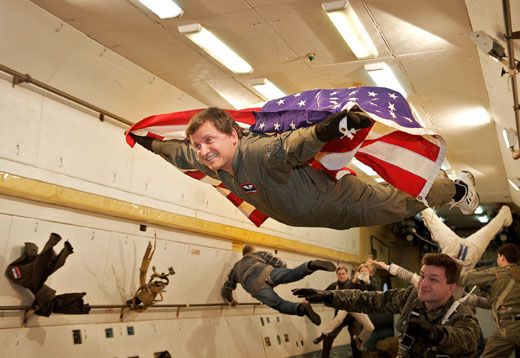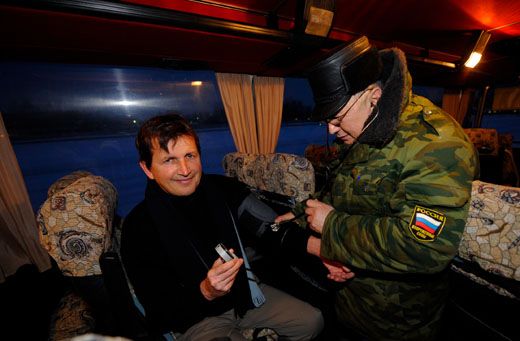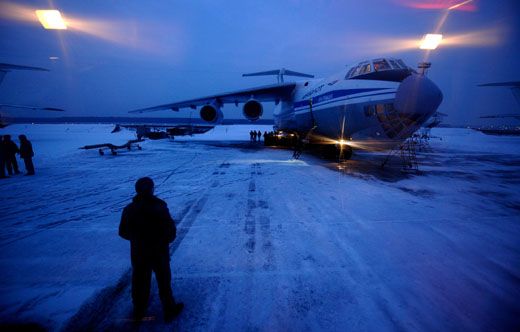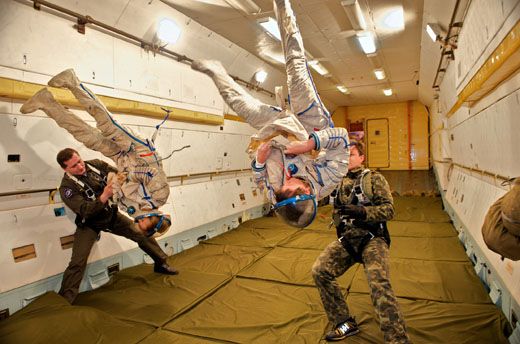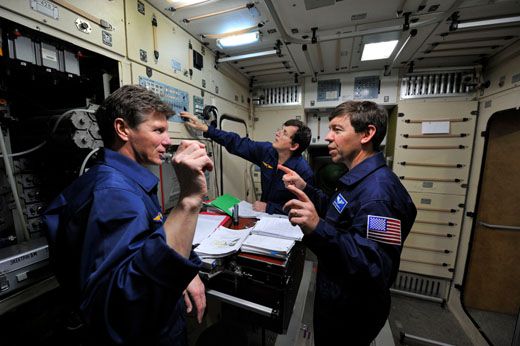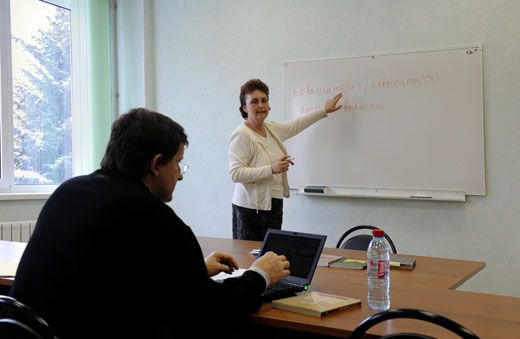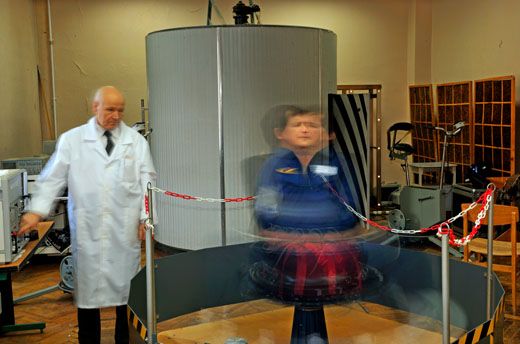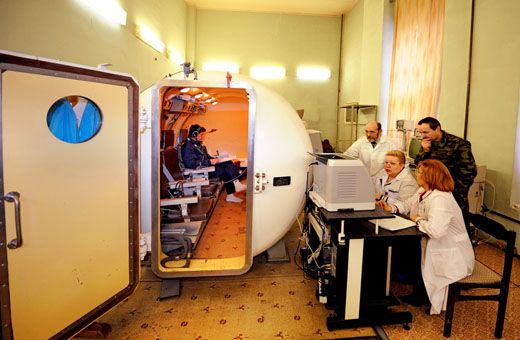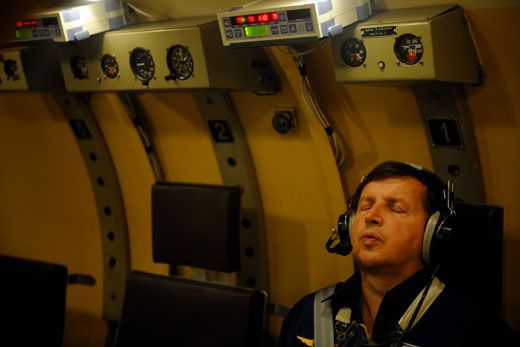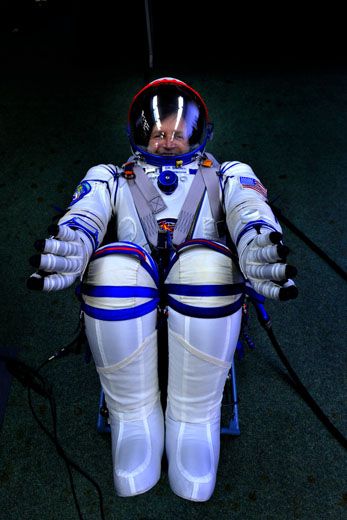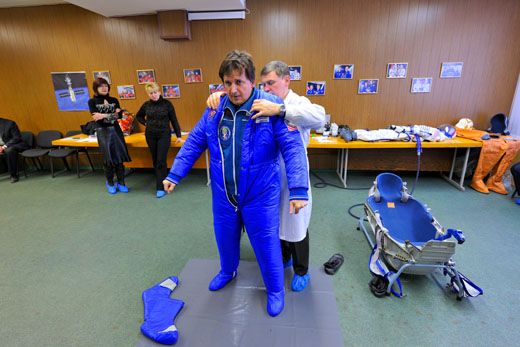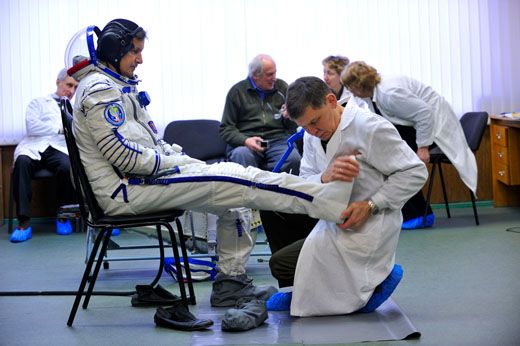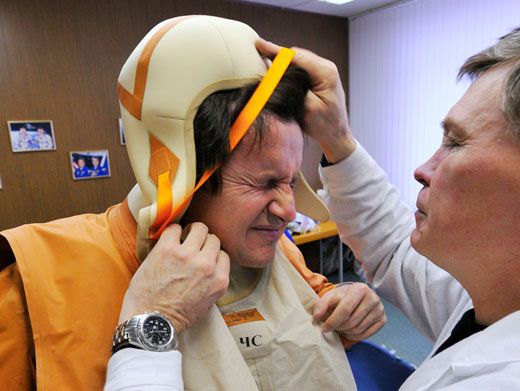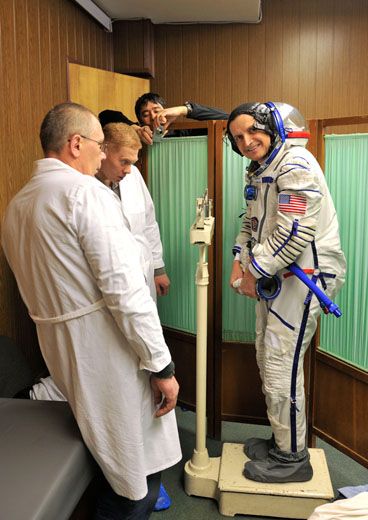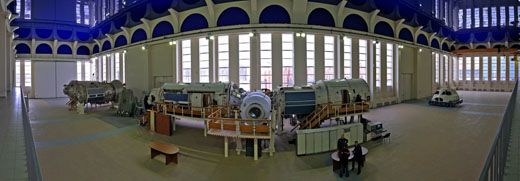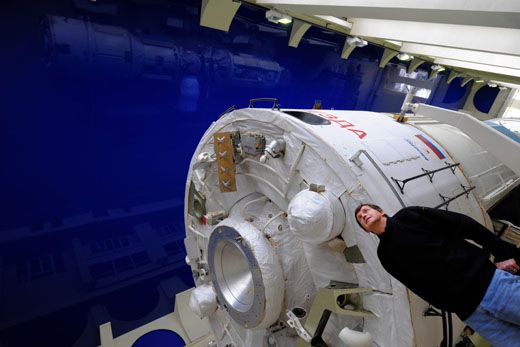Two-Timer
Where do you take your next vacation after you’ve been to space? If you’re billionaire Charles Simonyi, you go back.
/https://tf-cmsv2-smithsonianmag-media.s3.amazonaws.com/filer/Simonyi-flash.jpg)
In April 2007, Charles Simonyi cashed out some of the fortune he acquired as a lead software developer at Microsoft and bought a trip to the International Space Station. Irene Klotz caught up with Simonyi, who is training in Star City, Russia, to find out why once was not enough.
Air & Space: Was there anything about your last trip in space that made you feel there was something unfinished?
Simonyi: It’s not that it was unfinished—it was short. I almost look at it as if it were interrupted by the return to Earth. I had a wonderful time not only in space, but in Star City, where I have many friends. In fact it was during a social visit here in Star City that I firmed up my feeling that I should fly again. And coincidentally, the opportunity came up—an opportunity that may not return for a while. If you fly again within two years, some of your training is still valid, so all you have to do is refresh. The training period is less than half as long as it was before.
A&S: Is there anything you want to do on your second flight that you did not get a chance to do on your first?
Simonyi: Since I have more skills, I think I will be able to do more experiments than I did before. They will probably be the same kinds of experiments, since I know how to do those. I talked to the organizations that do the radiation detector, and they would like some of the detectors to be recalibrated. That would put new life into the old data because there is suspicion that the detectors might be out of calibration. They’ve been up in space for many years now, and they are just like an old lamp, if you will, that loses its brightness and doesn’t quite work the same. So I think it definitely will be valuable. Many of these experiments are fairly simple to do, and they don’t get done because the professional astronauts really don’t have time for them.
A&S: Do you have any inkling of how these experiences of flying in space will fold into your life professionally and personally?
Simonyi: Professionally, it’s helped in a minor way. I think I’m a better communicator. I work better in teams and I tend to ponder a little bit more before acting, to be a little less impulsive. But I don’t think that’s a good reason to go to space. I could have just taken a course, I guess, to do that. But certainly in my personal life, I tend not to sweat the small things and focus on the big things. I got married since the last flight [in November 2008, to Lisa Persdotter of Sweden]. That’s a big change in my life. I had pretty much made up my mind to fly before the engagement, and when I proposed, we discussed that I’d like to fly. And my wife-to-be was pretty supportive. But only once—she made it clear that this is it.
A&S: I guess that answers my next question: If you had the opportunity to live in space on a long-term basis, would you do it?
Simonyi: Apart from this promise I made to my wife, I think that space is not as benign as I thought, or as it is shown on Star Trek. It’s an environment that we have to adapt to. Maybe we have to take gravity with us, on a rotating space station. The effects of long-term weightlessness are not very well understood, and this is why it’s important that we have as many data points as possible on how space affects humans. In that way, we are all good data points. You don’t have to have the right stuff. In fact it helps [if you’re not a professional astronaut]. People who have the right stuff are somewhat alike, and it’s good to have a greater variety of people to get better data.
Even space adaptation sickness is not very well understood: Why do people get sick when they get to space for the first two days? Who doesn’t get sick? Is there any way to train for it? There’s quite a bit of mystery, and there is also disagreement. The Russians, for example, believe in training for it. The American approach is to hope for the best and medicate if it’s necessary, if somebody is stricken. I think it’s worth experimenting. Long-term habitation of space is not yet around the corner, if for nothing other than health reasons.
A&S: We’re not ready.
Simonyi: No, we really need to understand even how the body deteriorates in space. We limit people’s stay in space to about six months, and after six months in space, people come back not as happy campers. We don’t see much of that on TV, but I’ve seen it firsthand. I’m not going to say it’s shocking, but it made an impression on me. These are people who came through a very difficult experience. Interestingly enough, it’s really the change from space to Earth...and from Earth to space where many of the troubles occur.
A&S: It kind of begs the question of why we are pursuing this. Is this just our hubris?
Simonyi: I think that’s one way to put it. I would say it is hope. In the past it always served us to explore new worlds, and it’s something that seems to be written in our DNA.
People do these personal patches [for space missions] and I chose the motto that gives one possible answer to that question. It’s a quotation from Goethe’s Faust: “The eternal feminine draws us upward.” I’m claiming that it’s the eternal feminine that makes us go to space, at least in the motto of my personal patch. It’s a nice piece of art illustrating the eternal feminine as it pushes the spacecraft out to orbit.
A&S: Both metaphorical and literal…
Simonyi: Yes, it’s up from the gravity well.
A&S: Is this something you felt a personal calling to do for most of your life?
Simonyi: No, I certainly did not. Frankly, who has? Most people are very excited about space, either through science fiction or through the exploits of the people with the right stuff. But nobody had thought that a civilian, a private person, would be able to go to space so soon. When I was first offered this opportunity I didn’t take it seriously, because I didn’t think that I would be able to do it. It was a very pleasant surprise that in fact I can, and that a large number of people could.
A&S: It seems difficult to communicate the idea that space exploration is something fundamental to society. I was wondering, from your perspective working in the computer industry, why that is. It seems there is an oppressive feeling in the world today that things are fairly desperate.
Simonyi: When I planned to do this, things looked different. Time goes on, and life goes on, and we just have to do things when the opportunities come, not when the world’s clock shows exactly the right time. You should read President Kennedy’s address [at Rice University] in 1962. That was the only time he discussed the space program publicly aside from the address when he announced the national goal of putting a man on the moon. Kennedy said we were doing this not because it was easy but because it was hard, and that it would serve to organize and measure the best of our energies and skills.
I don’t think, by the way, that going to the moon today is the best way. At that time, [Kennedy] was so prescient. I don’t think that repeating that speech today would work. But what was valid then is just as valid today—that space is essentially a political thing. It’s a decision by the body politic, not a decision by scientists. There is really nothing out there that has a value greater than the cost of going there, if you know what I mean. I believe there will be something out there, but it is hope, it is not science.
